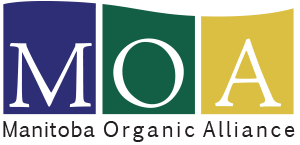
Organic Definitions
Organic
The term organic refers to an ecological method of agricultural production that respects the natural environment and avoids artificial additives. Organic farms focus on enhancing the vitality of the soil, preserving biodiversity, promoting animal welfare and preserving the ecological integrity of our environment. No synthetic fertilizers, synthetic pesticides or genetically modified organisms are permitted in organics. Organic food is regulated in Canada under the Canadian Organic Regulation and must meet all requirements as set out in the Canadian Organic Standard.
Organic Certification
Food which is labeled “Organic” must be certified as organic. This is the consumer’s guarantee that the food meets all requirements as set out in the Canadian Organic Standard. An organic farm or processor must apply to a CFIA Accredited Certification Body, and be able to show complete traceability of their products and be inspected by an independent third party.
Canadian Organic Standard
This standard contains a set of criteria for all methods and practices for producing and handling crops, livestock and processed products.
Permitted Substances List
This list identifies and supplies details on allowable substances that can be used in organic farming and production of organic products.
Canadian Organic Regulation
This is the legislation that has been passed by the government of Canada which states that in order for a food product to be deemed organic, it must meet the requirements as set out in the Canadian Organic Standard and the Permitted Substances List.
Canada Organic Regime
This regime is a partnership between the federal government as represented by the CFIA (Canadian Food Inspection Agency) and the organic industry. This body oversees organics in Canada. The Regime helps protect consumers from misleading labeling, reduce confusion about the definition of organic and facilitate development of organic markets.

